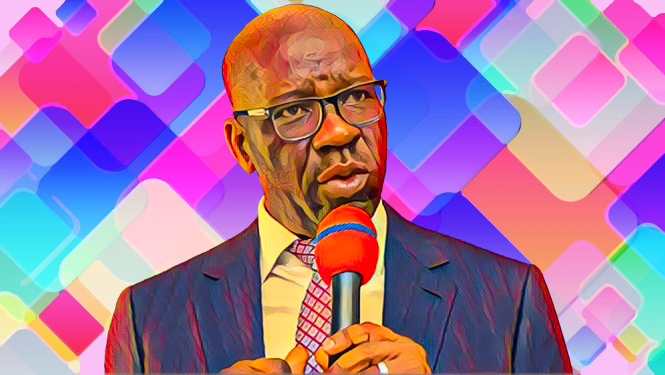Governor Godwin Obaseki of Edo State has disclosed that his administration planned to implement a ₦70,000 minimum wage three years ago, highlighting the state’s commitment to improving workers’ welfare. This revelation comes amid ongoing discussions about wage adjustments in Nigeria.
Speaking at a labor event in Benin City, Governor Obaseki explained that the state government had intended to raise the minimum wage significantly but faced economic constraints that delayed the implementation. “Three years ago, we planned to pay a minimum wage of ₦70,000 to our workers. However, economic challenges and fiscal realities hindered our ability to execute this plan at the time,” Obaseki stated.
The governor’s comments come as Nigeria grapples with economic difficulties, including high inflation, unemployment, and public debt. These challenges have intensified the debate over minimum wage adjustments, with labor unions advocating for higher wages to help workers cope with the rising cost of living. Currently, the national minimum wage in Nigeria stands at ₦30,000 ($65) per month, which many workers consider insufficient.
Obaseki assured workers that the state government remains committed to enhancing their welfare. He highlighted various initiatives undertaken by his administration to improve the economic conditions of the state, including job creation programs, infrastructure development, and investments in public services. “Our goal is to create a sustainable economic environment where our workers can thrive,” he emphasized.
Labor unions in Edo State have welcomed the governor’s acknowledgment of the planned wage increase but urged swift action to actualize it. The Nigeria Labour Congress (NLC) and other labor groups have been vocal in their demands for a significant wage hike, arguing that the current minimum wage does not reflect the economic realities faced by workers.
In response to these demands, Obaseki stressed the importance of ongoing dialogue and collaboration between the government and labor unions. He assured that his administration is open to discussions aimed at finding a viable solution that balances the needs of workers with the state’s fiscal capacity. “We are committed to working with labor unions to ensure that our workers receive fair compensation while maintaining economic stability,” he said.
Economic experts have noted the complexities involved in implementing a higher minimum wage. While acknowledging the necessity of wage increases to support workers, they caution that such adjustments must be carefully managed to avoid adverse economic impacts. They argue that a significant wage hike could lead to inflationary pressures, increased business costs, and potential job losses, which could undermine the benefits of higher wages.
Governor Obaseki’s revelation and commitment to improving workers’ welfare come at a critical time for Nigeria’s labor market. As the country continues to navigate economic challenges, the approach taken by state governments to address wage issues will be closely watched. Ensuring fair compensation for workers while maintaining economic stability is essential for fostering a thriving and equitable society.
In conclusion, Governor Godwin Obaseki’s disclosure of plans for a ₦70,000 minimum wage three years ago underscores the Edo State government’s commitment to workers’ welfare. As discussions on wage adjustments continue, the governor’s emphasis on dialogue and fiscal responsibility offers a balanced approach to addressing the economic challenges faced by Nigerian workers.
Source of this article: tribuneonlineng.com


